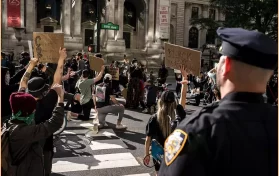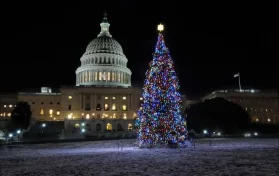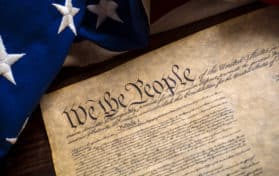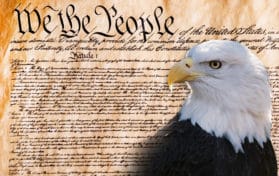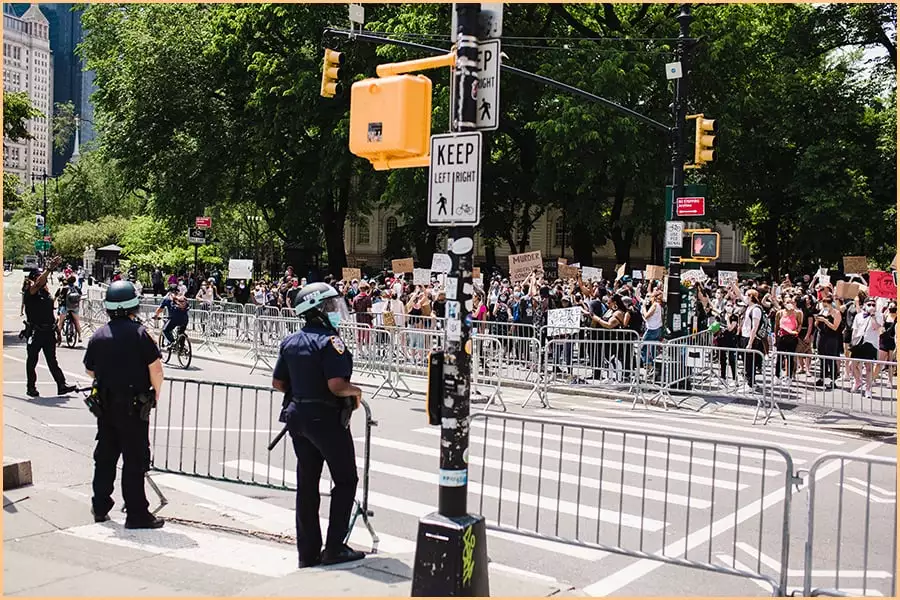
Congress is also known as the legislature. It consists of two houses, the Senate and the House of representatives.
It is known as the bicameral system of government. There are a total of 535 members in Congress.
The House of Representatives consists of 435 members, each elected proportionately to the size of the population of their congressional districts. The larger the size of the population, the greater the representation in the lower house.
The Senate consists of 100 elected members, with each state having two members who serve six-year terms. They participate in the legislative process but also have unique roles.
Being part of an essential branch of government can expose members of Congress to security risks, so do members of Congress have security?
Only nine members of Congress have full-time state-funded security. The members are the majority leaders of the upper and lower house, the minority leaders of the upper and lower house, the majority whip of the houses, the minority whip of the houses, and the speaker of the house.
The United States Capitol Police
The United States Capitol Police is the security detail tasked with protecting members of Congress within the Capitol.
Congress created the unit in 1828. It was created after John Adams II was attacked in the congressional premises.
The attack prompted the creation of the first and only policing agency appointed by a state branch.
The Roles And Duties Of The United States Capitol Police
In line with protecting members of Congress, the Capitol Police have various duties to fulfill. The responsibilities of the Capitol police are summarized below:
1. Detecting Criminal Activities
The Capitol security is responsible for detecting criminal activities. They do it in conjunction with other intelligence agencies such as Homeland Security.
They provide the requisite counter-measures to any activities that could endanger the members of Congress.
2. Protecting the lives of congressmen
The Capitol Police work with other law enforcement agencies to protect the lives of members of Congress. They respond swiftly to extinguish any mortal threat with proportionate force.
3. Protecting the property of congressmen
The Capitol Police ensures that the personal property of members of Congress is free from damage and theft.
The protection is offered only to property inside the Capitol building and the congressional complex. Any property outside Congress is not under the protection of the Capitol Police.
4. Traffic regulation within the Capitol complex.
Only authorized vehicles are allowed within the Capitol building and its environs. The Capitol Police ensure that all other traffic is redirected away from the building to ensure maximum security.
They also countercheck vehicles against a list of approved cars inspect them for IEDs and other potentially harmful weapons.
5. Investigating criminal acts
The Capital Police investigates criminal acts perpetrated within Congress and its environs. Any criminal activity such as theft, insurrections, destruction of property, and break-ins fall under the investigative jurisdiction of the police.
6. Preventing criminal acts
The United States Capitol Police ensures that no criminal acts occur within Congress.
They do this by corking in tandem with other law enforcement agencies to prevent threats of any level from actualizing in the premise of the Capitol.
Where Does The Jurisdiction Of The Capitol Police Lie?
The United States Capitol Police was formed to protect members of Congress. They have jurisdiction in certain parts, but the extent of their protection is limited.
Any protection outside the designated areas ought to be provided by the members of Congress on their dime.
The protection is offered in:
1. The U.S. Capitol building
The United States Capitol building is under protection at all times. It is the building where the Senate and members of the House of Representatives meet.
Here they make laws, amend them, hold impeachment trials and discuss issues of national importance.
The Capitol building is the official head of the legislative branch of the government. It holds all the 535 elected members during their session. It is therefore imperative that the building remain secure at all times.
The Capitol building has security both inside and outside, whether there are active sessions or even during recess.
2. Congressional office buildings
The congressional office blocks are adjacent to the United States Capitol building complex. The blocks house the offices of all 535 elected officials who serve both in the Senate and in the House of Representatives.
The congressional offices are located in a total of six buildings. The buildings are located along Independence Avenue and Constitution Avenue. The buildings along Constitution Avenue hold the offices of the Senators.
The Senate offices are located in Russell Senate Office Building, Hart Senate Office Building, and Dirksen Senate Office Building.
The offices for the members of the House of Representatives are located in Longworth House Office Building, Cannon House Office Building, and Rayburn House Office Building.
3. The Library of Congress buildings
The Library of Congress is the officially recognized national library of the United States. The building is under the protection of the Capital Police at all times.
The library in its entirety is housed in four buildings that is the John Adams Building, Packard Campus for Audio-Visual Conservation, the James Madison Memorial Building, and the Thomas Jefferson Building.
The Thomas Jefferson building is the oldest of the four blocks. It contains books that Thomas Jefferson sold to the library.
It was part of the effort to restore the national library following its destruction of the original in the war of 1812.
4. Parts of Washington D.C.
The Capitol Police have jurisdiction to operate in certain parts of Washington D.C., just outside the Capitol complex.
These areas are limited to sections of the South Western parts of the state. They also have jurisdiction to operate in some northern parts of D.C.
Who Protects Congressmen Outside The Designated Jurisdiction?
Members of Congress need to hire their security detail to offer protection services outside the designated areas. They do not receive an additional allowance for security in their salary structure.
Several private security firms offer such services in the United States.
Who Protects The Governor?
Governors are the chief executive heads of the individual states. They are also the national guard commanders in chief in their respective states.
Unlike senators and members of the House of Representatives, they do not work in Congress. They instead have official offices in their states.
Governors are elected officials who serve for four years. They each get a maximum of two terms in office.
Governors have different security detail from members of Congress. State troopers protect them.
State troopers are law enforcement agents who have jurisdiction over entire states. Their primary duty is to conduct investigations into criminal activities. They are also known as the state police.
General Duties And Responsibilities Of State Troopers
Aside from protecting the governor, state troopers have other responsibilities. These duties mainly revolve around the fundamentals of law enforcement.
The officers have statewide jurisdiction and are bound to operate within their respective states.
Some of the general duties of the troopers are:
1. Responding to emergencies
State troopers are responsible for responding to 911 calls in a prompt and timely fashion. They provide emergency assistance to callers in distress.
They could be criminal activities such as break-ins and robberies or other situations like fires and medical emergencies.
States have units on standby that respond to emergencies.
2. Patrol enforcement
One of the significant responsibilities is traffic law enforcement. Every state has a unit specialized for the role.
The primary responsibility under highway patrol enforcement is to prevent road-related accidents.
Policing duties include tracking stolen vehicles, arresting drivers under the influence, and enforcing speed limit regulation.
Patrol safety extends beyond vehicles; they ensure that pedestrians are safe too. It may involve arresting jaywalkers.
3. Conducting investigations into criminal activities
State police are tasked with investigating and arresting criminals. They use the resources at their disposal to solve cases and prevent crimes.
4. Vehicle inspections
State troopers are responsible for getting unroadworthy vehicles off state roads. They enforce the standard federal laws for things like insurance and licensing—the state police help determines who was at fault in collisions.
5. Coordinating with other law enforcement agencies
Local law enforcement agencies may coordinate with other agencies to assist in the investigation of criminal activities.
They may also work with troopers from other states to deport criminals who fled after committing crimes. It is achieved when states cooperate to bring criminals to justice.
Conclusion
The members of Congress have their privately-funded security detail. While at Congress, the Congress Police protects the members from external security threats. There are only specific members of Congress who enjoy full-time and state-funded protection.
Full-time protection is extended to the majority leaders of the upper and lower house, the minority leaders of the upper and lower house, the majority whip of the houses, the minority whip of the houses, and the speaker of the house.
The Capitol Police offers protection to every member of Congress, provided that the members are in the vicinity.


